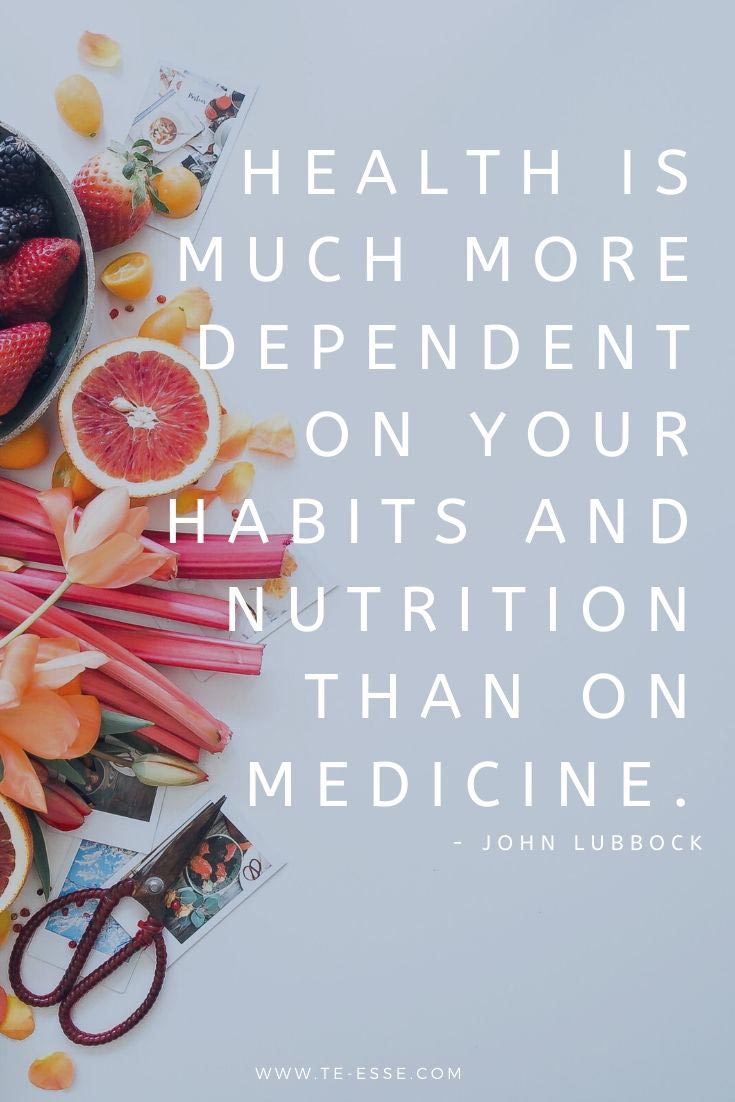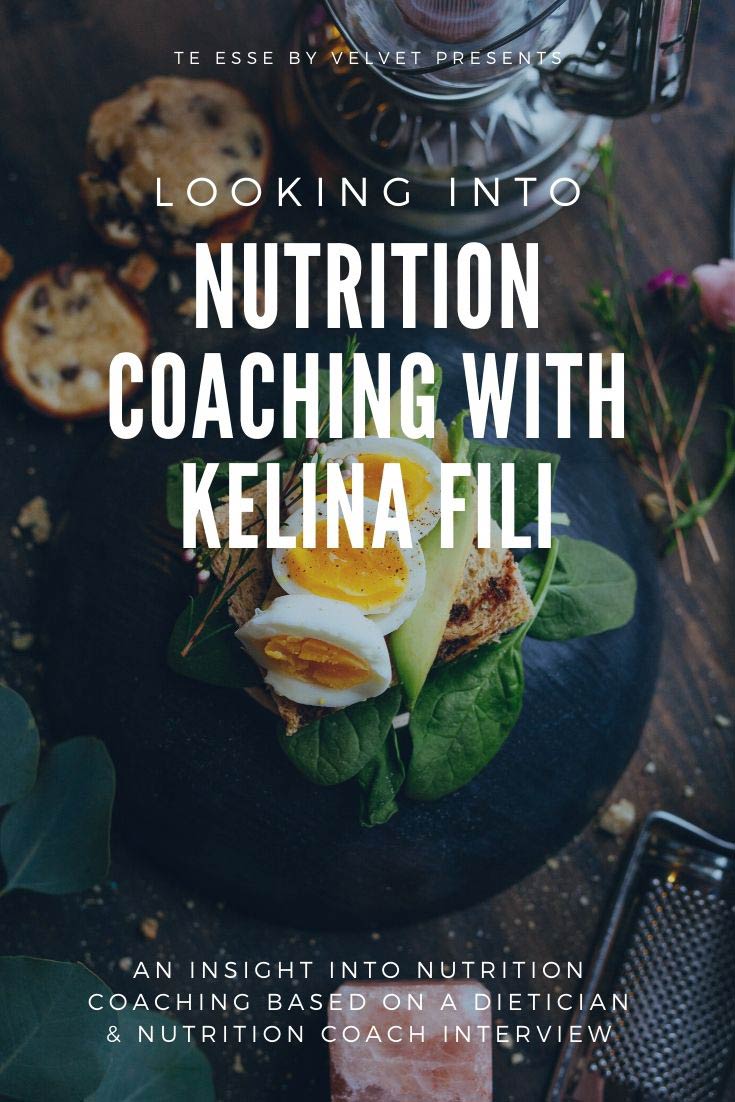As a mother of two in my early forties, I always get somewhat excited about any healthy discoveries that may help live the best, healthiest lives ever. So when I first heard about nutrition coaching I decided to look into it. Next, I met a dietician-nutritionist and nutrition coach, Kelina Fili and interviewed her so that I could share my findings with you.

To be honest, I knew of dieticians – nutritionists, but had not heard of nutrition coaching before. I met Kelina Fili through our fitness coach Ifiyenia. (For those of you who are new here, Ifiyenia helped me embark on my fitness journey. Anyway, Kelina is a sweet and dedicated person and this interview helped me answer all that I wished to know about nutrition coaching.
The Interview
About Nutrition Coaching
What is nutrition coaching?
Nutrition coaching is what modulates our way of thinking! It deals with the improvement and development of the one’s skills through nutritional education and careful direction towards their lifestyle goals. Nutrition coaching does not only deal with diet and weight loss! As a coach, I want to help my clients improve their overall heath, nutrition, exercise patterns, stress and energy levels, by developing skills and knowledge. I help them set their goals, in a realistic manner by building their own wellness vision.

The purpose of this process is for them to achieve all of their goals, that may affect numerous aspects of their lives, and especially behavioral patterns, that affect their health. As a coach, I listen more than I talk, I ask more than comment and I’m mostly trained to read between the lines and outline my clients’ feelings. A coach is collaborative and co-creative partners in a client’s journey to reach their goal and fulfill their health visions.
What skills do you need to become a nutrition coach?
Formal coaching training and certification are required. Having a degree in nutrition or dietetics is also vital, to be able to support the client’s nutritional needs. What makes one, however, a good coach is practice. To become a nutrition coach you firstly need to love your profession! Aptitude for empathy, active listening and mindfulness is a must.
What can you do and what you can NOT as a nutrition coach?
As a coach I, firstly, need to accept my clients’ situation, in order to guide him/her throughout their wellness vision. A nutrition coach helps one build confidence and define a higher purpose for health and well-being. We help in setting and achieving realistic goals as well as harnessing the strengths needed to overcome any obstacles, re-framing them as opportunities to learn and grow. My primal role is to inspire and challenge my clients to go beyond what they would do on their own. I help them by assisting them to discover their strengths, set their priorities in order to meet their challenges by brainstorming possibilities with a greater aim to design positive actions.
On the other hand, our job is not to analyze problems. If during a session anything comes up that is out of my area of expertise, I suggest that he/she seeks the advice of the appropriate professional. Furthermore, giving advice and solutions is something a nutrition coach would not do. The coachee needs to create his/her own aims and as a coach I do not recommend goals or develop strategies. However, non-judgmental questions, as well as powerful reflections are the needed skills to empower clients find their own answers.
How do you practice diet coaching?
In nutrition coaching we work by setting goals. The first sessions are about the clients’ vision. In the next sessions we work by recognizing any obstacles that may occur, opportunities that may arise and discuss nutrition, fitness and health planning as important life skills. Through goal setting, we turn visions and intentions into actions and reality.
Nutrition Coaching vs Diet Counseling
What is the difference between nutrition coaching and diet counseling?
The difference between coaching and counseling is that coaching helps the client set and achieve their own goals, while on the other hand counseling promotes problem solving. In nutrition coaching the client sets a wellness vision and works alongside the dietitian/nutrition coach in order to make it happen, by building confidence, understanding their emotions and creating new patterns of thinking, doing, and relating.
A nutrition coach challenges the client to create new pathways towards their goal, while counselors focus on helping the client be at peace with each situation. Nutrition coaching takes many aspects of everyday life and well-being into consideration (exercise, stress, overall health). Behavioral changes are promoted in nutrition coaching! And that’s the main difference and what makes a difference!
Do you give out diets?
In the past few years, dietitians used to just give out diets. Now, nutrition coaching and diet counseling are aligned. As a registered dietitian I give out diets when needed and as a nutrition coach I also work with other behavioral strategies during sessions, as appropriate. Having both tools in my arsenal, grants me the opportunity to work with many strategies, both behavioral and nutritional. You don’t have to be one OR the other!
How successful is nutrition coaching in your opinion?
Weight and health issues occur when our nutritional behavior is not proper. The fundamentals of nutrition coaching are to recognize emotions and alter one’s thoughts, feelings and therefore their actions and behaviors. It works at a deeper level. Understanding why you do the things you do and eat the way you eat is the first step in maintaining a healthy nutrition and this awareness promotes healthier behaviors.

What to Expect
When clients come to you what do they expect from you? What do they ask from you?
Nutrition coaching is relatively new! A lot of people are not even aware of its existence. All of my clients request to change this or that nutritional behavior and improve their heath. I do my best to make it happen, using all the strategies I have.
Still, a common request I get is help them stop fixating about their body weight and to put an end to quick fixes. Their request is really to develop a unique health style that fits them and easy to follow. They just need someone and/or something to boost their confidence and help them take action to close the gap between where they are and where they want to be.
How do you keep your clients motivated in order to achieve their goal?
As I said before, in our first sessions we build the coachee’s wellness vision. A strong wellness vision is the greatest motivation! We need to remind ourselves why we do the things we do and why we want to make this lifestyle change. However, setbacks are normal and always happen! It is a big challenge to keep being motivated. It is important to build the client’s confidence to make sure that they are ready to face any obstacles or difficulties may occur.
How optimistic are your clients?
They are really optimistic, happy and strong when they realize how much progress they’ve made! They start feeling competent and confident with every goal achieved and blissful that they’ve made it this far all by themselves, with a little bit of guidance.
How strict is nutrition coaching?
As a coach my concern is to support my clients and be there for them. We are both working towards a greater goal! Nutrition coaching is not strict, but flexible. One needs to be motivated without feeling any pressure. As a coach, I attend to the client and the client’s agenda and work in a way that they feel comfortable and at ease. My job is to trigger the client to become resistant and self-efficient, generating a new self-concept and motivate them to take new actions.
Have you been coached yourself before starting to practice nutrition coaching?
Yes, working to improve your-self is vital! As a coach I need to learn, for example, how to dissociate myself in order to remain unbiased, but have also empathy. Coaching, in general, can help with every goal anyone sets. Either personal or professional. Mentoring is also important for a coach to develop coaching skills and processes and discuss any issue that may occur, with a more experienced professional.
Do you set big goals with your clients or is it all about working bit by bit and keeping it more realistic?
Small victories lay the foundation for self-efficacy!
Kelina Fili
You should consider the goal as a staircase. At the end there is a vision of “Where I want to be.” The steps are small and steady and by making each step you’re a little bit closer to your dream. Each small goal is a step closer to the clients’ greatest goal and wellness vision! Small and attainable steps. Small victories lay the foundation for self-efficacy!
Are there any who stop nutrition coaching?
There are many external factors that may hinder a client’s progress and dedication (money, time, family obligations e.t.c.). Secondly, chemistry between the coach and the coachee is, also, significant in order to keep this collaboration going. Drop outs are always normal and happen to every profession. The key is to keep the coachee motivated and confident to face any obstacle.
Nutrition coaches inspire their clients to change rather than pushing and exhausting them and that is done simply by trying to motivate their client. They motivate their clients, give them a sense of purpose and finally inspire them hoping for the best. Nutrition coaches have the knowledge and understand that clients cannot do it all. So they give one small habit at a time because they know that this is far more effective than throwing an ambitious project at them!
My Conclusions
The realness in the approach of a nutrition coach is by far what appeals to me most, for nutrition coaches practice the art of human connection. Almost anyone could say for example: “Do not eat processed food” instead you should “always eat local, seasonal, organic food.” But the reality of the matter is unless you are living in a yurt, somewhere where you grow your own food from the ground up, it is very difficult to keep up with such an expectation! And eventually everyone would give that aspiration up.
However, if the aspirations are real, then with the help of a nutrition coach you can explore the underlying barriers, such as unconscious beliefs and emotional reasons to change bad nutritional habits i.e. overeating. So it’s not about juggling a “quick fix.” It is a real commitment to practice a healthier lifestyle based on self determination and self responsibility.
Lastly, I’d like to mention that I totally respect and understand that what may work for me might not work for another person. And with that in mind I want to thank you for reading this post. Till next time…keep well and healthy!

If you wish, you could follow Kelina Fili’s Facebook page.




